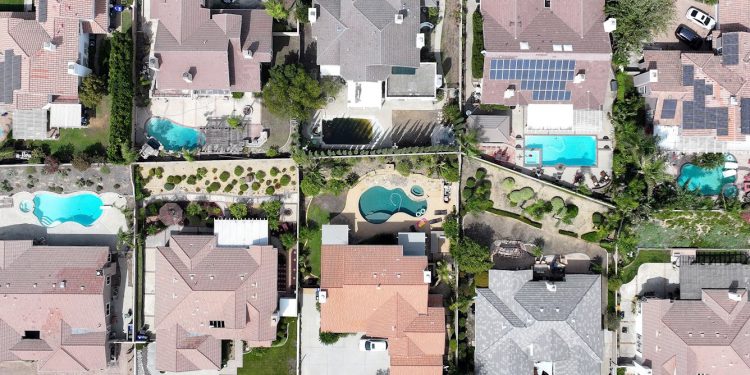In today’s hot housing market, winning a bidding war can feel like a triumph. But my research shows it often comes with a catch: Homebuyers who win bidding wars tend to experience a “winner’s curse,” systematically overpaying for their new homes.
I’m a real estate economist, and my colleagues and I analyzed nearly 14 million home sales in 30 U.S. states over roughly two decades. We found that people who paid more than the asking price for their homes – a reliable sign of a bidding war – were more likely to default on their mortgages and saw significantly weaker returns.
How much weaker? On average, homebuyers who won bidding wars saw annual returns that were about 1.3 percentage points lower than those who didn’t, we found. We specifically looked at “unlevered” returns – basically, the returns you’d get if you bought the home outright with cash, without factoring in a mortgage.
Since the typical homeowner in our sample held a property for 6.3 years before selling it, this translates to about an 8.2% overpayment. Bidding-war winners were also 1.9 percentage points likelier to default.
Perhaps that loss would be worth it to someone who absolutely loves the property – but we found that homebuyers who purchase after a bidding war are also faster to resell. This suggests their overpayment is based less on enduring affection and more on bidding-war fever.
We also found that the effects of the winner’s curse – lower home appreciation and higher default rates – are stronger in places where bidding wars are more common. One example is my hometown of Rochester, New York, which has become a bidding-war hot spot in recent years.
Who bears the brunt? Lower-income, Black and Hispanic buyers are more likely to overpay in bidding wars, we found, making them more likely to suffer from the winner’s curse. This suggests that hot housing markets can worsen inequality.
Why it matters
While housing is the largest single form of wealth Americans own, past research on the winner’s curse mostly dealt with land auctions and company mergers – not the nation’s roughly 76 million owner-occupied, single-family homes. Our work is the first to show the direct evidence of the winner’s curse in residential housing markets.
This matters now because the housing market is cooling. Those who bought in the post-pandemic housing market and listed their homes in 2025 are already facing the risk of selling at a loss. Because this risk falls disproportionately on Black and Hispanic homebuyers, it could further widen the wealth gap.
By one measure, foreclosures are up 18% year over year. If the brunt of these losses falls on lower-income or otherwise vulnerable homeowners, the result could be an increase in housing insecurity and homelessness.
The good news is that the winner’s curse may be preventable. Better resources to prepare first-time homebuyers and comprehensive financial education related to mortgages and debt could help.
What still isn’t known
It’s possible more transparent bidding processes – or even formal auction systems for popular homes – could better inform prospective buyers and help them stave off the temptation of overpayment. Should the U.S. require real estate brokers or banks to caution their clients to think twice before going above the asking price? Or would that be unfair to sellers? Experimental research on these points would be useful.
Finally, our research focuses on the U.S. housing market. Whether the winner’s curse afflicts buyers in other countries remains an open question.
The Research Brief is a short take on interesting academic work.
![]()
Soon Hyeok Choi does not work for, consult, own shares in or receive funding from any company or organization that would benefit from this article, and has disclosed no relevant affiliations beyond their academic appointment.













